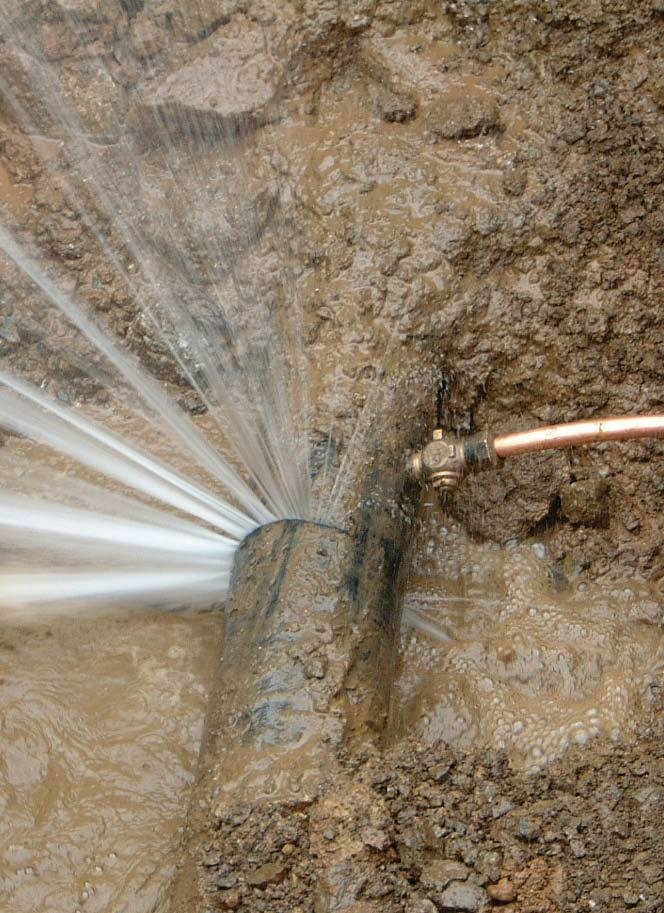System Improvements Benefit Mechanism on Hold at ACC; Awaiting Appeal to Supreme Court
In what was thought by many an innovative approach to funding investment in dilapidated and crumbling water distribution infrastructure, the Arizona Court of Appeals vacated the System Improvements Benefit (SIB) adjustor mechanism, authorized by the ACC for Arizona Water Company, and later extended it to other water companies (see my previous post HERE). According to the court opinion, the SIB mechanism approved by the ACC “. . . does not comply with the Arizona Constitution’s mandate that the Commission determine and use fair value when setting a monopolistic utility’s rate.” 
The fair value requirement embedded in the constitution has long been an obstacle to both the ACC and utilities seeking efficient ways to authorize rates for unique circumstances facing utilities and their customers. While previous court cases have imposed limits on the types of rate-adjustor mechanisms that are allowed – for example, rate adjustors for changing fuel costs for gas and electric utilities, which only recover the costs for fuels, and which are often volatile are ok – other costs like those targeted by the SIB charge for fixing worn-out, leaking pipes seem not to be allowed.
That’s not to say that utilities should be afforded unfettered ability to raise rates outside a rate case where all the company’s revenues and expenses are weighed and the fair value of the utility company’s assets is determined. But, full rate cases are expensive and time-consuming to process. Sometimes a carefully constructed, more flexible approach to a particular cost issue, like the SIB would better serve utilities and customers alike.
Utilities regulated by the ACC have a responsibility to provide safe and reliable service to their customers. To do so, they must be able to attract capital necessary to replace worn-out infrastructure and invest in new facilities to accommodate growth. This requires a healthy financial base, adequate rates to cover the costs of service, and a realistic opportunity to earn a reasonable return on investment.
A major component of AIC’s mission is to support investment in the State’s essential infrastructure. Timely and adequate investment in water infrastructure is important for  safe delivery of water to customers and for a community’s economic well-being. Since utility companies compete for access to capital for these investments based upon investor perceptions of regulatory and business risks facing each company, matching regulatory policies with investor expectations is key to gaining access to capital on the best possible terms and for the lowest possible cost.
safe delivery of water to customers and for a community’s economic well-being. Since utility companies compete for access to capital for these investments based upon investor perceptions of regulatory and business risks facing each company, matching regulatory policies with investor expectations is key to gaining access to capital on the best possible terms and for the lowest possible cost.
This is what the SIB attempts to do – provide flexibility in an otherwise cumbersome, time-consuming, and rigid regulatory environment. The SIB was designed with numerous requirements to ensure that customers received the benefits promised and that utility companies did not exceed the earnings level authorized by the Commission in a rate case.
Unfortunately, the court opinion invalidates the SIB mechanism and returns us to the ratemaking scheme developed over a century ago. The result imposes additional regulatory costs and processing delays, which contribute to and foster chronic under-investment in critical utility facilities.
Ironically, the lawsuit brought and won by RUCO against the ACC and the SIB it authorized will impose additional costs onto the very customers represented by RUCO, and solidifies ratemaking methods best suited to the early 20th century. Moreover, the precedent set by the court opinion invalidating the SIB reaches beyond water companies and will affect other regulated utilities seeking greater efficiency and lower costs through rate adjustment mechanisms. Invalidating the SIB as a ratemaking tool moves us backward, not forward.
The Commission has authorized its attorneys to pursue judicial review by the Arizona Supreme Court. The Commission now has until October 19 to file with the court.
Other parties, including AIC, will then have the opportunity to file Amici briefs in support of the Commission.

 safe delivery of water to customers and for a community’s economic well-being. Since utility companies compete for access to capital for these investments based upon investor perceptions of regulatory and business risks facing each company, matching regulatory policies with investor expectations is key to gaining access to capital on the best possible terms and for the lowest possible cost.
safe delivery of water to customers and for a community’s economic well-being. Since utility companies compete for access to capital for these investments based upon investor perceptions of regulatory and business risks facing each company, matching regulatory policies with investor expectations is key to gaining access to capital on the best possible terms and for the lowest possible cost.
